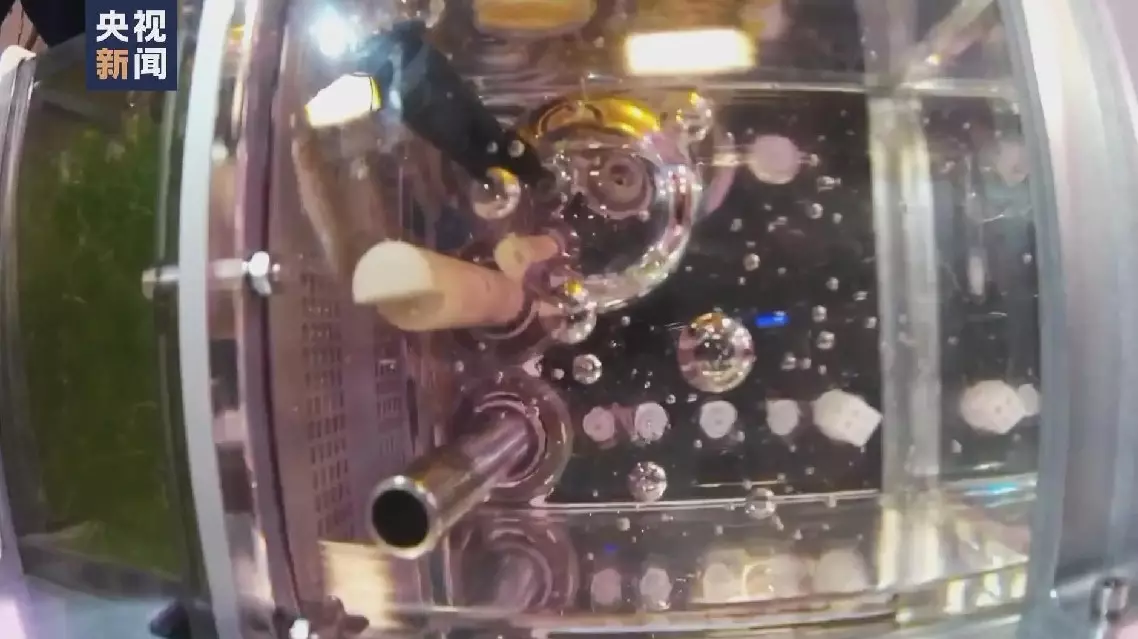Qinghai Lake, located amidst the breathtaking landscapes of the Qinghai-Xizang Plateau in northwest China, stands as a testament to China's reverence for nature.
As the country's largest inland saltwater lake, it thrives as a cradle of life, teeming with diverse flora and fauna.
One of the most captivating inhabitants of Qinghai Lake is the naked carp, known as Huangyu, which is endemic to the region and plays a vital role in maintaining the delicate ecological balance of the lake.
In this episode of "Classic Quotes by Xi Jinping," Tang Yulin, a dedicated protector of the naked carp underscores the crucial role of the species to Qinghai Lake.
"In the biodiversity chain of Qinghai Lake, the naked carp lies at the bottom but holds utmost importance. If it goes extinct, the hundreds of thousands of water birds are not able to stay here. They will fly away because they have nothing to eat. Consequently, Qinghai Lake may turn into a dead lake," Tang said.
For over 30 years, Tang, a former official of the Fishery Administration in Haibei Tibetan Autonomous Prefecture in Qinghai, has been tirelessly safeguarding the naked carp and has witnessed China's concerted efforts to rescue the species from the brink of extinction.
"Due to natural disasters and overfishing, the population of naked carps suffered a devastating collapse. During that period, the amount of naked carps decreased from its original 320,000 tonnes to less than 2,600 tonnes, nearing the brink of extinction. Our provincial government has been intensifying efforts to protect the naked carps. This has been done through promoting public awareness of the law, and emphasizing the importance of conserving naked carps and protecting the environment of Qinghai Lake," he recalls.
The state has also invested heavily in establishing a naked carp rescue center, aimed at preserving the primitive fish species through artificial incubation and breeding of more seed fish and releasing them into the lake.
"The seed fish of Qinghai Lake naked carps are in these ponds for the third stage of cultivation. We have built up two breeding stations, and two temperature-controlled circulating water workshops, in addition to our outdoor ponds. Our center now has the capacity to breed 20 million seed fish of the Qinghai Lake naked carp annually. We have cumulatively released nearly 200 million seed fish into Qinghai Lake," says Yu Luxian, a staff member of the Qinghai Lake Naked Carp Rescue Center.
Through over 20 years of protection efforts and benefiting from the growth of naked carp resources, the bird population of Qinghai Lake has kept growing.
Statistics from relevant departments show that by 2022, the local bird population had surpassed 600,000, comprising over 230 different species.
Tang expresses his hope that younger generations would carry on the legacy of protecting the environment and ecology of Qinghai Lake, following the vision of ecological civilization.
"I hope the younger generation will uphold our elders' resilience and perseverance, and fully harness their power to protect the ecological environment of Qinghai Lake, in line with General Secretary Xi Jinping's vision of ecological civilization. I hope they will continue to work tirelessly to help naked carps swim more joyfully and healthily, and in greater numbers," Tang says.
The Chinese nation has always respected and loved nature. The 5,000-year-old Chinese civilization has nurtured a rich ecological culture, Xi said at the National Conference on Ecological and Environmental Protection, May 18, 2018, quoting from the Book of Changes.
"We should learn about the changes of the season by studying natural phenomena and foster social development by studying human phenomena. Wealth arises from following the way of heaven and earth and assisting the natural order," he continued.
"Lao Tzu says, For I am abstracted from the world, the world from nature, nature from the Way, and the Way from what is beneath abstraction," Xi said.

Qinghai Lake serves as testament to China's respect for nature









